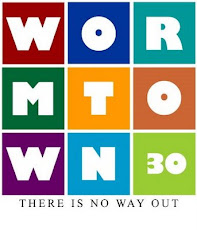There are calls that you remember, calls you forget, calls you'd rather forget. Then there are those we carry forever in the back of our mind. Those that come around from time to time and pull on the heart strings. This is one of them.
It was eighteen years ago today. My partner and I were flagged down by the caller. A woman leaving work heard her cries and called 911. I found her with a bloody towel in a plastic shopping bag near the rear tire of a parked car. She was a newborn, maybe hours old. She was cold, wet, bloody and alone. How desperate do you have to be to do this? We took her immediately to our truck and started to dry her. She had a good cry and good tone. Ten fingers, ten toes. We turned up the heat. Ironically, her disposal garment may have saved her life. Wrapping newborns in plastic wrap is now neonatal resuscitation protocol to prevent heat loss. Her umbilical cord had been cut but not clamped. She had lost a bit of blood but her color was good. I clamped the cord, thankful that we won’t need an umbilical line. My partner suctioned her nose and mouth making sure her airway was clear. And that was it, no intubation, no IO, no CPR, nothing fancy or sexy. The ride across town couldn’t have taken more than three or four minutes but it felt like an eternity. En-route, we wrapped her up in a dry bath blanket and delivered her in stable condition to the ER at Memorial.
That was the last I saw of her. Her parents were never found.
The local news must have heard us on the scanner and picked up the story. Being May first, she was dubbed Baby May by the hospital staff. They say every cloud has a silver lining. Well, because of her story, a bill was filed in 2000 called the Baby Safe Haven Bill. The bill allowed a new mother to surrender her baby to a police station, fire station or hospital without question or prosecution. The bill was signed into law in 2004 and is credited with saving more than 25 lives, preventing ninety five percent of these tragedies in Massachusetts. I hope she knows of this law in her honor.










